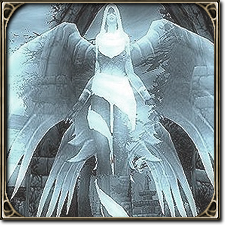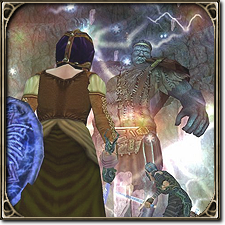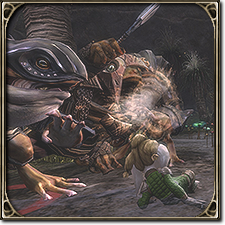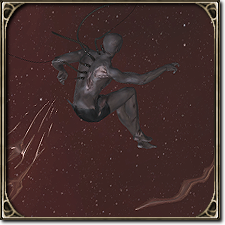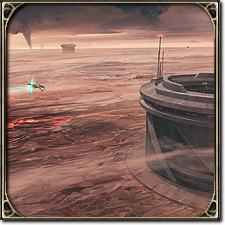MMO Mechanics: Exploring death mechanics
They say death must come to us all, and that inevitability extends to our characters in MMOs. The death of our characters may be inconvenient when we want to plough through content, but penalising failure is an essential part of any MMO and further incentivises success by making you learn from your mistakes. As much as players crave gratification through rewards and progression, they also need to feel that such progress has been well-earned and greatly deserved.
Rewards become that much sweeter when we must risk something to secure them, and failure without consequence would render the gains made in our favourite MMOs insignificant. Without a considerable death penalty, it becomes possible to mindlessly crush content through brute force. I don't know about you, but I don't find fun in bashing my skull repeatedly with a rock in an attempt to crack it!
In this week's MMO Mechanics, I compare various death penalties and the effects they have on the MMOs that employ them. I'll explore just how tangible death penalties such as corpse running, gear durability loss, and XP drain make our character's demise feel.
The dreaded corpse run
One of the most archetypal methods of dealing with character death is the World of Warcraft-style corpse run, which prompts players to run from a resurrection point to the place where they were slain. This corpse collection has been presented in various ways: you might perhaps need to return your severed spirit to your corporeal form in order to respawn and continue your adventure, or you might have to run back to your corpse in order to reclaim your gear or stats. The standard corpse run usually has some sort of auto-resurrection alternative that lets you respawn directly at a safe point. This can save you from having to reclaim your sorry carcass from an area which is clearly too dangerous for your character to navigate.
Corpse retrieval as a mechanic is effectively a time penalty, lowering your efficiency in gaining progress as a repercussion for your character's death. Wasting time is an excellent barrier against rinse-and-repeat methods of clearing content, since players are very aware of the trek back to their broken bodies and the amount of precious gaming time that jaunt might fritter away. This mechanic now seems uninspired to most, though, and can be immersion-breaking in titles that don't overtly explain why or how you might be resurrected. The run back to your body often doesn't feel like much of a punishment in and of itself, and time is a very subjective unit with which to measure a penalty.
XP drain
Time is not the only valuable commodity that developers prey on if your character dies: Many MMOs employ XP drain or similar penalties in order to limit what we might today call Leeroy Jenkins syndrome. This kind of direct loss of progression is effectively another time drain as you must recover that lost experience before you can progress any further, but it feels a little more threatening than merely running after your corpse. If your character has not yet accrued enough experience to absorb the loss, games will typically not let you lose an entire level, but there are exceptions. EverQuest ensured that death was always a penalty by applying negative XP to your characters that must be worked off before they can progress again.
Death feels much more meaningful when a player suffers a substantial loss, leading many players to favour direct penalties like experience drain over more obvious time drains like corpse running. Conversely, losing experience can also come across as too harsh when it robs you of a night's gaming by making you earn all that experience back through yet more hard graft. It isn't nice to feel like you are having to recover lost ground, and XP loss may prevent players from rising to difficult challenges or exploring new, higher-level areas.
Death prevention mechanics
Some MMO developers give you a fighting chance at preventing character death and unnecessary interruptions. Guild Wars 2 gives players an opportunity to fight for their character's survival by putting them in a weakened "downed" state before actual death occurs. Downed players can claw back from the brink by killing an enemy or can be helped up by nearby friends, ready to fight the next mob without visiting a spawn point first. This encourages teamwork by making survival easier if you have a friend on-hand to assist you through difficult missions.
In these mechanics, there is either a hidden or obvious countdown timer that sets a limit on how long you can lie around waiting for assistance or hoping to slay a monster to secure your survival. Guild Wars 2 drains your downed health over time, and each successive downing in a short space of time will reduce that initial pool of health. In Neverwinter, you must be assisted within 15 seconds, otherwise you lose the option to be resurrected on the battlefield.
These mechanics are usually incorporated to eliminate the corpse run and are implemented in tandem with a waypoint system. If you fail to secure a battlefield resurrection, you will respawn at your closest or most recently visited waypoint, so you most likely won't have to travel far to continue with the quest at hand. This stops players from manipulating death mechanics to create a crude fast-travel system as can happen with corpse running.
Broken equipment and wasting money
In addition to wasting your time and stalling progression, MMOs like to sting players with financial penalties and equipment damage. It's logical that character-killing amounts of damage would also damage gear, so many games achieve a sense of realism through implementing an item durability system. Durability loss can be rectified by repairing items with consumables or paying an amount of gold to specialised NPCs, which can become significant at higher levels.
The loss of finances and equipment is particularly pertinent in EVE Online, since all equipment in the game has a set market worth that means the destruction of your vessel is essentially a financial loss. This is sometimes erroneously referred to as permadeath, but your actual character never truly dies. Instead, characters eject from their destroyed spaceships in escape pods and can warp to safety. If the escape pod is destroyed, the character wakes up in a fresh clone body with all of the original character's skills intact.
Though you can technically lose a small number of skill points on death, this happens only if you've forgotten to update your clone and will never actually happen to most players. The financial loss of ships can be partly mitigated by purchasing insurance, but there's always enough on the line to ensure that EVE players consider every engagement carefully. One vessel can potentially have a value of billions of ISK, which takes a considerable amount of time and effort to accumulate.
Not-so-permadeath
MMOs have traditionally shied away from hardcore permadeath mechanics since the genre typically involves sinking months of game time into each fully-levelled character. Losing everything through one mistake or an unfortunate server outage could make the whole progression system seem pointless. The development team behind Star Citizen plans to experiment with a lighter variety of permadeath that hopes to avoid this pitfall. At the start of the game, players will select a beneficiary that will receive all of their characters' insured equipment upon their deaths.
This beneficiary is some relation of the first character, so players will progress through a continuous family tree as they explore the persistent Star Citizen universe. The beneficiary will start with similar allegiances to its predecessor, too, meaning that your efforts to support a certain faction will not be wasted if your character dies. Interestingly, your character will go through several close calls before his or her body is finally deemed beyond repair by futuristic medics, so you won't lose your character automatically the first time a risky operation goes south.
There are many different ways to apply a penalty to character death in MMOs, and different player types may favour certain variants over others. Some games combine the different mechanics to make a more unique or punishing system that better appeals to their target audience. No matter how death penalties are presented, some sort of risk and consequence is a necessary evil, otherwise the game and our journey would feel meaningless.
Upcoming titles like Star Citizen are planning on adding realism and a sense of peril to more standard death mechanics by exploring the concept of lineage and legacy, which makes me very excited to see how this might shape the future mechanics of MMOs. The weight of consequence we feel when we are reminded that our heroes are not invincible gives us an adrenaline rush that we simply would not get from exploring a world with no repercussions for mistakes.

MMOs are composed of many moving parts, but Massively's Tina Lauro is willing to risk industrial injury so that you can enjoy her mechanical musings. Her column, MMO Mechanics, explores the various workings behind our beloved MMOs every Wednesday.


